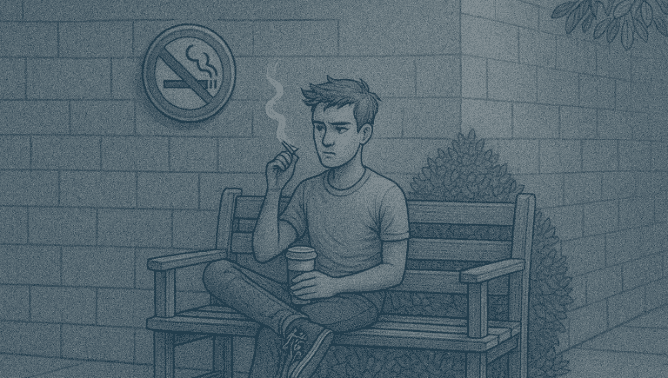Key Takeaways
- The main difference is motivation; social anxiety comes from fear of judgment, while ASPD stems from disregard for others and manipulative behavior.
- Both conditions can look similar on the surface, since each may involve avoiding social situations and struggling with relationships.
- Relationship patterns set them apart; social anxiety often leads to fewer but meaningful bonds, while ASPD usually results in shallow or exploitative connections.
- Treatment options are different, with CBT and exposure therapy effective for social anxiety, while ASPD requires approaches like DBT and schema therapy that focus on empathy and long-term behavioral change.
- A Mission For Michael (AMFM) provides specialized assessment and treatment for both personality disorders and anxiety conditions, ensuring accurate diagnosis and individualized treatment approaches that address each condition’s unique challenges and therapeutic needs.
Understanding the Confusion: Why ASPD and Social Anxiety Get Mixed Up
Antisocial personality disorder and social anxiety disorder sometimes get confused because both can involve social avoidance, difficulty maintaining relationships, and patterns of behavior that others find concerning or hard to understand.
The confusion often arises when family members observe someone who struggles socially. Someone with social anxiety might appear aloof when they’re actually terrified of judgment. Conversely, someone with ASPD might seem socially anxious when they’re calculating how to manipulate situations for personal benefit.
This confusion can lead to inappropriate responses, ineffective support strategies, and delayed access to proper professional help. What helps someone with social anxiety might be counterproductive for someone with ASPD, and vice versa.
| A Mission For Michael: Expert Mental Health Care Founded in 2010, A Mission For Michael (AMFM) offers specialized mental health care across Southern California, Minnesota, and Virginia. Our accredited facilities provide residential and outpatient programs, utilizing evidence-based therapies such as CBT, DBT, and EMDR. Our dedicated team of licensed professionals ensures every client receives the best care possible, supported by accreditations from The Joint Commission and the California Department of Health Care Services. We are committed to safety and personalized treatment plans. Start your recovery journey with AMFM today! |
Antisocial Personality Disorder: Key Characteristics and Behaviors

Antisocial personality disorder is marked by persistent disregard for rules, manipulation, and lack of remorse, shaping behavior across many aspects of life.
Antisocial personality disorder represents a pervasive pattern of disregarding and violating the rights of others that typically begins in childhood or adolescence and continues into adulthood.
Individuals with ASPD consistently show little regard for social norms, rules, or the rights of others. This isn’t occasional rule-breaking; it’s a persistent pattern affecting multiple life areas. They may lie frequently, manipulate others for personal gain, and show little genuine remorse for actions that hurt others.
Perhaps the most significant aspect is the limited capacity for genuine empathy or deep emotional connections. People with ASPD may intellectually understand that their actions affect others, but don’t experience the emotional impact that would typically motivate different behavior.
Many individuals with ASPD become skilled at manipulation, using charm, deception, or emotional manipulation to achieve goals. They may present different versions of themselves to different people, making it difficult for others to understand their true intentions.
Social Anxiety Disorder: Signs, Symptoms, and Impact
Social anxiety disorder involves intense, persistent fear of social situations where the person might be judged, embarrassed, or rejected by others. Unlike normal nervousness, social anxiety significantly interferes with daily life, relationships, and personal goals.
At its core, social anxiety stems from an overwhelming fear of negative evaluation by others. People experience intense anxiety about being watched, judged, or criticized in social situations, often much more intense than the situation warrants.
Social anxiety manifests through physical symptoms like rapid heartbeat, sweating, trembling, and nausea, plus emotional symptoms including intense dread before social events, overwhelming self-consciousness during interactions, and harsh self-criticism afterward.
To manage their anxiety, people often develop elaborate avoidance strategies, declining social invitations, avoiding speaking up at work, or choosing careers that minimize social interaction.

Social anxiety involves genuine distress and fear about social judgment, leading to avoidance behaviors that are protective rather than manipulative.
The Critical Differences: How to Tell Them Apart
Motivation for Social Behavior
The most significant difference lies in why someone behaves the way they do socially. People with social anxiety avoid social situations because of intense fear and self-protection. Their avoidance stems from caring too much about what others think and being terrified of rejection or judgment.
By contrast, individuals with ASPD may avoid social situations or behave antisocially due to disregard for others, lack of interest in genuine connection, or because social situations don’t serve their personal interests. When they do engage socially, it’s often for personal gain rather than authentic connection.
Emotional Response to Others
People with social anxiety typically experience excessive concern about others’ feelings and reactions. They worry intensely about offending, disappointing, or being rejected by others. This hypersensitivity to social cues often makes social interactions exhausting.
Individuals with ASPD generally show limited concern for others’ emotional experiences. They may understand intellectually how their behavior affects others but don’t experience the emotional resonance that would motivate them to change their behavior to protect others’ feelings.
Response to Treatment and Feedback
People with social anxiety usually welcome treatment and are motivated to improve their social functioning. They recognize that their anxiety causes problems and genuinely want to develop better social skills and relationships.
Those with ASPD may be less motivated to change, particularly if their behavior serves their purposes effectively. They might engage in treatment when required by legal systems or when their behavior creates significant personal consequences, but intrinsic motivation for change can be limited.
Relationship Patterns
Social anxiety typically leads to relationships that are few but potentially deep and meaningful. People with social anxiety often form strong bonds with those who make them feel safe and accepted, though they may struggle to initiate or maintain these relationships due to their anxiety.
ASPD often results in numerous but shallow relationships. Individuals may have many acquaintances or even romantic partners, but these relationships typically lack emotional depth and often involve some degree of manipulation or exploitation.
Surprising Similarities: Where These Conditions May Overlap
Despite fundamental differences, both conditions can involve social avoidance, though for different reasons. Someone with social anxiety avoids situations due to fear, while someone with ASPD might avoid them due to disinterest or lack of benefit.
Both conditions can make intimate relationships challenging and often result in being misunderstood by others. In some cases, individuals may experience both conditions or other mental health conditions that complicate diagnosis.
Treatment Approaches: Different Conditions, Different Solutions
Treatment for social anxiety focuses on reducing fear and anxiety while gradually increasing comfort in social situations. Cognitive-behavioral therapy helps identify and challenge anxiety-provoking thoughts, while exposure therapy gradually helps face feared situations.
Treatment for ASPD requires different approaches focusing on developing empathy, understanding behavioral impact on others, and learning to make decisions considering long-term consequences. Dialectical behavior therapy and schema therapy address deep-rooted personality disorder patterns.
Why Choose AMFM? Expert Care for Complex Mental Health Conditions

AMFM provides expert, insurance-friendly care in comfortable settings, offering tailored residential and outpatient programs for complex mental health conditions.
Distinguishing between ASPD and social anxiety requires specialized expertise in both conditions. At AMFM, our clinical teams understand the crucial differences and provide comprehensive assessment and individualized treatment approaches.
Our thorough assessment process includes evaluation by professionals trained in both anxiety disorders and personality disorders. We understand that accurate diagnosis is the foundation of effective treatment.
For social anxiety, our programs focus on cognitive-behavioral therapy, exposure therapy, social skills training, and anxiety management in supportive environments where individuals can build confidence safely.
For ASPD, we offer specialized programming addressing complex interpersonal and behavioral patterns through dialectical behavior therapy, schema therapy, and other evidence-based personality disorder interventions.
We offer multiple care levels like residential and outpatient programming, allowing individuals to receive appropriate support intensity while maintaining maximum independence. Our facilities provide comfortable environments designed to facilitate healing and growth.
We work with most major insurance providers and make starting treatment straightforward through comprehensive verification and personalized treatment planning.
If you’re seeking clarity about social anxiety or personality disorder concerns, we’re here to help. Call 866-478-4383 or visit our website to verify coverage and begin assessment leading to accurate diagnosis and effective treatment.
Frequently Asked Questions (FAQ)
Can someone have both antisocial personality disorder and social anxiety?
While uncommon, it’s possible to have traits of both conditions. However, ASPD’s core features (lack of empathy, disregard for others) are generally incompatible with social anxiety’s excessive concern for others’ opinions. Professional assessment can clarify complex presentations.
How can family members tell the difference between these conditions?
The key lies in motivation and emotional response. Someone with social anxiety genuinely cares about others’ feelings and is distressed by social difficulties, while someone with ASPD shows little concern for how behavior affects others. Professional assessment is essential for accurate diagnosis.
Is treatment more effective for social anxiety than for ASPD?
Both conditions can be effectively treated, but they require different approaches and timeframes. Social anxiety often responds well to focused anxiety treatments and may show improvement relatively quickly. ASPD treatment typically requires longer-term commitment and focuses on gradual behavior change and skill development rather than symptom reduction.
What should I do if I’m unsure which condition applies?
Seek professional assessment from providers experienced in both anxiety disorders and personality disorders. Avoid self-diagnosis or online tests, as these conditions require comprehensive evaluation. Early, accurate diagnosis leads to more effective treatment and better outcomes.
Why does AMFM specialize in both anxiety and personality disorders?
AMFM recognizes that mental health conditions often co-occur and that accurate assessment requires expertise across multiple areas. Our clinical teams are trained in both anxiety disorders and personality disorders, allowing us to provide comprehensive evaluation and avoid the misdiagnosis that can occur when treatment centers specialize too narrowly.






